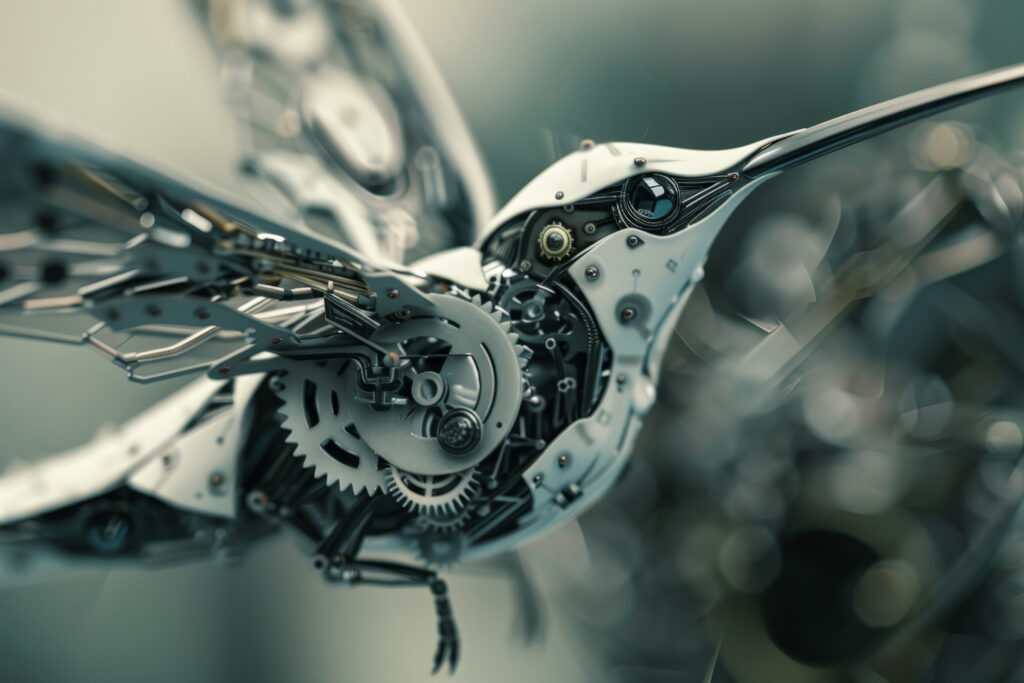Automotive Innovations: Driving Fuel Efficiency with Lightweight Gears
Exploring Advanced Gear Technology for Modern Automobile Efficiency In the ever-evolving automotive industry, innovations in gear technology are driving the future of fuel efficiency and vehicle performance. Our comprehensive guide delves into the latest advancements in lightweight, fuel-efficient gears, showcasing how these cutting-edge components are revolutionizing modern automobiles. From advanced materials to innovative design techniques, […]

Exploring Advanced Gear Technology for Modern Automobile Efficiency
In the ever-evolving automotive industry, innovations in gear technology are driving the future of fuel efficiency and vehicle performance. Our comprehensive guide delves into the latest advancements in lightweight, fuel-efficient gears, showcasing how these cutting-edge components are revolutionizing modern automobiles.
From advanced materials to innovative design techniques, discover how manufacturers are achieving significant weight reductions and enhancing fuel economy without compromising durability or performance. Stay ahead of the curve with insights into the benefits, applications, and future trends of lightweight, fuel-efficient gears in the automotive sector.
The Need for Fuel-Efficient Gears in Modern Automobiles

Fuel efficiency has become a top priority in the automotive industry due to rising fuel costs and stringent environmental regulations. Automotive innovations, particularly in gear technology, play a crucial role in achieving this goal. Fuel-efficient gears contribute significantly to vehicle fuel efficiency, reducing the overall consumption of fuel and lowering emissions.
This is achieved through the use of lightweight materials and advanced gear designs that minimize energy loss and improve transmission efficiency.
Courtesy : Freepik Images
Advanced Materials and Their Role in Gear Weight Reduction
One of the key factors in developing lightweight gears is the use of advanced materials. Traditional steel gears, while durable, are relatively heavy and can negatively impact fuel economy.
Modern automobile components now incorporate materials such as aluminum, carbon fiber, and advanced composites, which offer substantial weight savings without sacrificing strength and durability. These materials are not only lighter but also exhibit superior resistance to wear and tear, making them ideal for high-performance automotive parts.
Innovative Gear Design Techniques
Innovative gear design is another critical aspect of achieving fuel economy improvements. Engineers are constantly exploring new ways to optimize gear shapes and configurations to reduce friction and energy loss. Techniques such as tooth profile modification and surface finishing are employed to enhance gear performance.
Additionally, the use of computer-aided design (CAD) and simulation tools allows for precise modeling and testing of gear designs, ensuring optimal performance before production.
Cutting-Edge Automotive Gears in Action

Cutting-edge automotive gears are already making their mark in various vehicle models. For instance, many electric and hybrid vehicles feature advanced gear technology to maximize their efficiency and range.
Lightweight gears are particularly beneficial in these vehicles, where every kilogram of weight saved translates into better performance and fuel savings. Furthermore, high-performance sports cars and luxury vehicles also utilize these innovative gears to achieve superior acceleration and handling characteristics.
The Benefits of Lightweight, Fuel-Efficient Gears
The advantages of adopting lightweight, fuel-efficient gears in modern automobiles are manifold. Firstly, they contribute to significant fuel economy improvements, which is a major selling point for consumers. Secondly, these gears help in reducing the overall weight of the vehicle, leading to better handling and performance.
Thirdly, they enhance the durability and lifespan of the transmission system, reducing maintenance costs for the vehicle owner. Lastly, by improving fuel efficiency, these gears play a vital role in reducing the carbon footprint of automobiles, aligning with eco-friendly automotive solutions and sustainable practices.
Future Trends in Automotive Gear Advancements
The future of automotive gears is poised for exciting developments. As technology continues to advance, we can expect even more innovative gear designs and materials to emerge. One of the anticipated trends is the integration of smart technologies into gear systems. This includes the use of sensors and IoT (Internet of Things) to monitor gear performance in real-time and make adjustments to optimize efficiency.
Additionally, the ongoing research in nanotechnology and materials science may lead to the creation of ultra-lightweight and super-durable gear materials, further pushing the boundaries of what is possible.
Challenges and Considerations in Gear Manufacturing Techniques
Despite the numerous benefits, there are challenges associated with the development and implementation of lightweight, fuel-efficient gears. One of the primary challenges is the cost of advanced materials and manufacturing techniques. While these components offer long-term savings in terms of fuel and maintenance, the initial investment can be significant.
Manufacturers need to balance cost considerations with the benefits to ensure these innovations are accessible to a wide range of consumers. Moreover, the precision required in manufacturing these advanced gears demands high levels of expertise and sophisticated equipment.
This necessitates continuous investment in research and development as well as training for engineers and technicians. Ensuring the durability and reliability of lightweight gears under various operating conditions is another critical consideration.
Manufacturers must conduct extensive testing to validate the performance of these gears to ensure they meet the stringent standards of the automotive industry.
Embracing the Future of Fuel-Saving Technology
The advancements in lightweight, fuel-efficient gears represent a significant leap forward in automotive technology. By embracing these innovations, the automotive industry can achieve remarkable improvements in vehicle fuel efficiency and performance.
The integration of advanced materials and innovative design techniques is paving the way for a new era of high-performance automotive parts that are both durable and eco-friendly.
As the industry continues to evolve, staying informed about the latest trends and technologies is crucial for manufacturers, engineers, and consumers alike. The future of automotive gears holds immense potential, promising not only enhanced vehicle performance but also a positive impact on the environment.
By focusing on gear weight reduction and fuel economy improvements, the automotive sector can contribute to a more sustainable and efficient future.
Incorporating these cutting-edge automotive gears into modern automobile components is not just a technological advancement; it’s a commitment to better fuel efficiency, reduced emissions, and a greener planet.
As we look ahead, the ongoing developments in advanced gear technology will undoubtedly shape the future of the automotive industry, driving us toward more innovative, efficient, and eco-friendly transportation solutions.

